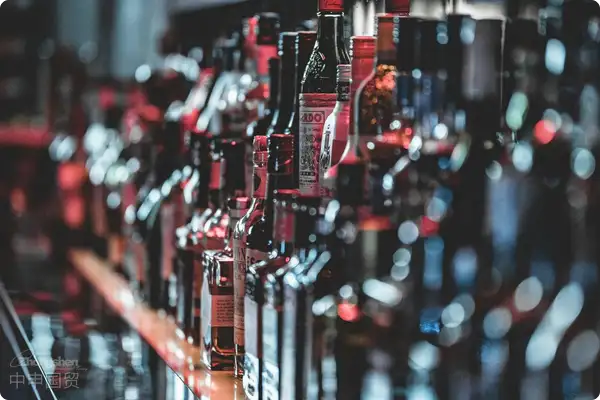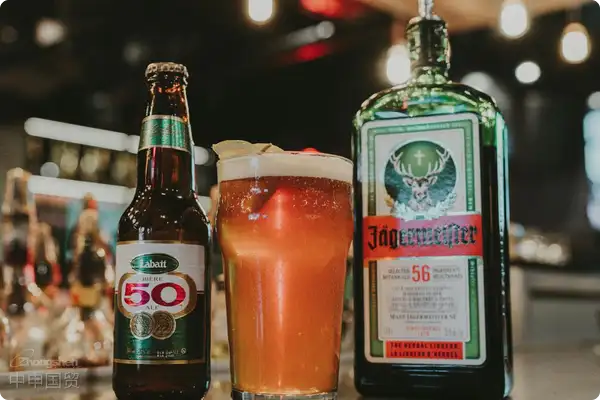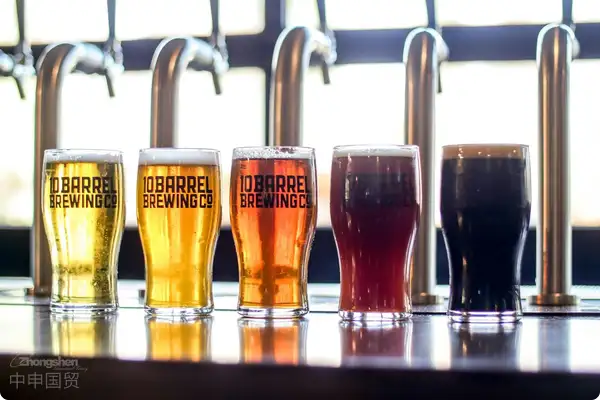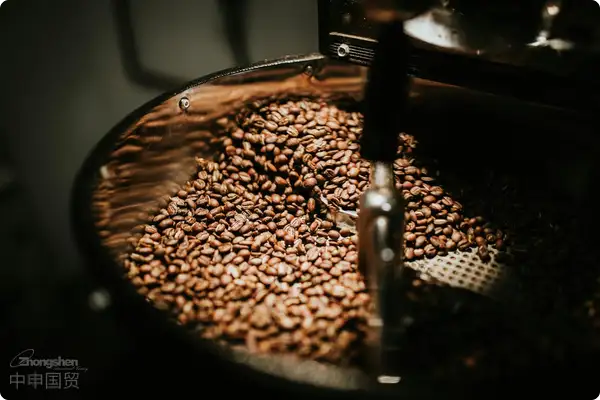Is your German beer customs clearance process truly compliant?
精品国产精品网麻豆系列 |
精品日韩亚洲一区二区三区 |
国产69精品久久777的观感
|
中文字幕十乱码中文字幕 |
欧美日韩亚洲中文字幕二区网址 |
日韩一区二区三区精品视频第3页
中文字幕aⅴ天堂亚洲国产av
|
蜜桃91精品一区二区三区 |
99视热频这里只有精品 |
女同熟女少妇同性少妇女同 |
日本一区二区三区在线观看免费 |
韩国三级电影善良的嫂子 |
国产亚洲一区二区三不卡 |
欧美精品久久久久久一区二区三区
|
污污污的网站在线免费看 |
日韩欧美亚洲中文字幕乱码 |
久久综合九色综合88中文字幕有码
|
国产精品日韩欧美在线第一页
|
国产亚洲欧美另类久久久 |
国产在线视频欧美一区二区三区
|
亚洲综合国产一二三四五区 |
小草在线观看视频播放2019 |
亚洲欧美一区二区三区爽爽爽 |
亚洲精品中国一区二区久久 |
久久久精品一区二区三区大全
|
日韩欧美中文字幕在线四区 |
国产精品双马尾后入爆操 |
国产精品福利在线播放 |
最好看的日韩中文字幕电影 |
精品国产高清三级在线观看 |
日韩国产精品久久久久久亚洲 |
69热视频在线观看免费 |
一区二区三区手机在线播放 |
无人区码一码二码三码区 |
午夜天堂av天堂久久久 |
国产精品国产三级农村妇女
|
精品久久久久久99蜜桃 |
久久国产精品骚熟女av |
久久国产精品男人的天堂av |
亚洲欧美另类综合图片专区
|
久久精品国产亚洲av日韩 |
91精品蜜臀在线一区尤物 |
国产一区二区三区亚洲综合 |
日韩欧美一区二区三区中出内射 |
国产欧美国产精品第二区 |
蜜臀av一区二区三区蜜乳 |
精品国产一区二区三区蜜臂 |
亚洲欧美国产精品中文字幕 |
亚洲精品亚洲人在线观看
|
日本免费播放器一区二区
|
国产av剧情片一二三区 |
麻豆一区二区国产三区亚洲人
|
亚洲国产日韩精品一区二区三区 |
午夜天堂av天堂久久久 |
秋霞伦理日韩中文字幕av |
日韩免费av区二区电影 |
99久久精品日本一区二区免费 |
成人黄页视频在线播放 |
国产主播欧美日韩在线播放 |
亚洲精品乱码97久久久久久 |
欧美精品区一区二区三区 |
久久精品亚洲国产av麻豆长发 |
国产激情久久久久久熟女 |
十分钟做a小视频免费观看 |
亚洲国产日韩精品福利一区 |
国产精品初高害羞小美女 |
一区二区日韩精品中文字幕 |
亚洲av噜噜噜一区二区三区 |
日韩国产精品久久久久久亚洲 |
91精品国产乱码久久蜜桃麻豆 |
亚洲男人的天堂av中文字幕 |
国产精品色婷婷在线观看 |
欧美中文字幕一二三四乱码 |
欧美精品久久一区二区三区四区
|
国产欧美日韩亚洲第一第二页 |
国产精品91一区二区三区四区 |
成人黄色小视频下载网站 |
欧美一区二区三区激情免费
|
久久婷婷六月丁香综合啪 |
18禁真人污视免费网站 |
国产乱码欧美乱码在线视频 |
天天操天天干天天干天天操 |
亚洲av色一区二区三区精品东京热 |
亚洲国产成人精品毛片九色 |
成人黄网站色视免费大全 |
欧美一级高清片国产特黄大片一 |
91亚洲国产成人久久精品蜜臀 |
一区二区三区av 在线播放 |
午夜三级视频久久国产丝袜美腿
|
国产三级黄色的在线观看 |
日韩不卡一区二区三区四区 |
亚洲欧美日韩综合另类一区 |
欧美人在线一区二区三区 |
亚洲av成人一区国产精品 |
激情久久av区二区av |
一本不卡欧美一区二区三区
|
狠狠狠综合久久久久久久 |
99久在线国内在线播放免费观看 |
国产精品久久久久久成人 |
亚洲人成网站18禁止天堂 |
污污污的网站在线免费看 |
国产精品久久久亚洲天堂 |
91色综合久久夜色精品国产 |
中文字幕欧美一区二区三区 |
蜜桃av一区二区三区在线观看 |
我露出雪白的奶头给我同桌吃 |
18禁无遮挡禁无遮挡免费播放 |
91亚洲国产成人久久精品蜜臀
|
狠狠狠综合久久久久久久 |
久久99久久久久久久久 |
国产亚洲一区二区三不卡 |
国产理论一区二区三区久久 |
51国产午夜精品免费视频 |
国产五月色婷婷六月丁香视频 |
欧美日韩高清在线观看一区二区 |
亚洲婷婷久久一本青青久久网站
|
成人国产一区二区三区精品不卡 |
久久精品亚洲国产av麻豆长发
|
亚洲中文字幕中文字幕中文字幕 |
97色伦在色在线播放免费 |
五月综合婷婷开心综合婷婷 |
欧美精品网站一区二区三区 |
国产视频日韩视频欧美视频 |
91久久精品一区二区三区大
|
秋霞日韩欧美一区二区三区 |
久久久熟妇五十路二区一区 |
天天操天天干天天干天天操 |
国产午夜免费电影在线观看
|
精品国产日韩欧美另类免费观看 |
久久精品店一区二区三区
|
国产精品国产三级国av在线观看
|
加勒比久久伊人欧美国产 |
丝袜人妻电影一区二区三区 |
国产精品国产三级农村妇女
|
欧美日韩精品一本二本在线
|
韩日国产精品一区二区三区 |
久久乐国产精品一区二区三区 |
午夜性色一区二区三区不卡视频 |
久久精品国产亚洲av麻 |
国产精品十八禁一区二区三区 |
亚洲精品亚洲人在线观看 |
欧美一区二区自偷自拍视频
|
亚洲av永久精品毛片天堂 |
欧美精品欧美一区二区精品久久久
|
同房后女生下面有黄色分泌物 |
尤物精品国产亚洲亚洲av麻豆
|
国产精品午夜福利影院在线观看 |
亚洲成av人一区二区三区 |
美日韩人妻精品一区二区三区 |
一区二区国产精品三区在线电影 |
亚洲av噜噜在线最新网站 |
欧美成人精品第一区二区三区 |
91在线精品免费一区欧美直播 |
视频区自拍偷拍一区二区 |
最新国产美女一区二区三区 |
中文字幕欧美精品人妻一区 |
欧美激情综合色综合啪啪啪五月
|
一区二区三区亚洲中文字幕 |
日本黄色亚洲成人日韩欧美 |
国产亚洲精品久久久久久久久动漫 |
在线日本一区二区免费观看 |
同房后下面流黄黄的液体 |
欧美黄色免费网站在线观看 |
影音中文字幕av资源在线 |
一区二区三区四区蜜桃 |
精品夜夜嗨av一区二区 |
日韩av一区二区三区网站 |
小草在线观看视频播放2019 |
久久99精品久久久久蜜桃tv |
亚洲av色图一区二区三区 |
国产欧美一区二区三区奶水
|
亚洲精品一区二区三区小说 |
欧美激情欲高潮视频高清 |
久久国产一区二区二区三区 |
久久精品亚洲国产av麻豆长发
|
免费亚洲色图久久综合网 |
国产午夜福利视频第三区 |
欧美激情欲高潮视频高清 |
日本大香蕉一本到免费无一码 |
亚洲av激情电影在线观看 |
蜜臀国产综合久久第一页 |
国产精品久久久亚洲综合天堂 |
色狠狠婷婷一区二区三区 |
精品一区二区三区熟女少妇 |
欧美一区二区三区免费观看视频
|
av网站在线免费观看入口 |
亚洲欧美日韩另类专区第八区 |
日韩精品在线观看一二三 |
俺来也官网欧美久久精品 |
亚洲男人的天堂av中文字幕 |
97影院理论片在线观看 |
蜜臀国产综合久久第一页 |
国产一区你懂的在线观看 |
99re热在线播放视频 |
亚洲国产精品久久久久性色 |
精品日韩av高清一区二区三区
|
国产三级在线播放视频不卡 |
亚洲电影在线一区二区三区 |
亚洲熟女自拍偷拍一区二区 |
日韩欧美亚洲国产精品字幕久久久
|
精品免费久久久久久影院 |
亚洲黄色av一区二区在线观看 |
日韩特一级a毛大片欧美大片 |
日韩夫妻精品熟妇人妻一区 |
久久精品店一区二区三区 |
久久夜色撩人精品国产小说免费 |
亚洲av成人一区国产精品 |
亚洲av极品男人的天堂观看 |
最近高清中文字幕一区二区 |
成人欧美一区二区三区视频 |
午夜福利国产盗摄久久性 |
欧美国产日本一区二区三区
|
粉嫩一区二区三区精品视频 |
日韩精品一区二区亚洲av性色 |
亚洲人五月天久久综合九九 |
日韩欧美亚洲国产精品字幕久久久 |
国产免费一区二区三区性色 |
亚洲av午夜精品久久久 |
国产伦精品99久久自偷国产 |
久99精品免费观看视频 |
国产精品爽爽va在线全集观看
|
欧美变态口爆一区二区三区 |
最好看的日韩中文字幕电影 |
91国内揄拍国内精品人妻 |
亚洲精品国产久久久久久 |
久久精品国产亚洲av蜜屁股
|
国产一级二级三级aa视频 |
国产一区二区三区在线啊
|
久久久久国产一区二区三区下载 |
中国一区二区三区高清电影 |
色噜噜色狠狠狠狠狠综合色一
|
国产无人区码一码二码三码区别 |
日本一区二区不卡免费观看 |
亚洲成a人片在线观看无遮挡 |
国产毛片一区二区三区秋郁浓
|
日韩欧美亚洲国产午夜在线 |
精品夜夜嗨av一区二区 |
免费无遮挡午夜视频网站
|
一区二区三区日本韩国欧美 |
欧美三级韩国三级日本三斤 |
人妻少妇精品一区二区三区视频 |
国产精品性色一区二区三区在线蜜
|
欧美老人激情五月综合网 |
国产一区二区三区色噜噜91 |
私人小影院网站午夜在线观看 |
久久精品一区二区66 |
色噜噜色狠狠狠狠狠综合色一
|
午夜精品内射少妇视频在线 |
欧美精品一区二区日韩精品 |
护士精品一区二区三区99 |
中文字幕女同性恋一区二区三区 |
久久碰国产一区二区三区 |
激情五月婷婷丁香久久综合网 |
欧美加勒比一区二区三区 |
制服丝袜中文字幕一区二区 |
小说区图片区视频区亚洲 |
国产吧中文字幕欧美日韩 |
久久国产综合伊人77777 |
亚洲熟女av综合一区二区三区个 |
色悠久久久久综合网小说 |
最近日韩一区二区三区四区av |
一区二区三区高清视频精品 |
一级国产麻豆片在线观看 |
国产欧美一区二区图片专区 |
中文字幕高清在线一区二区不卡 |
欧美激情综合色综合啪啪啪五月 |
久久999欧美日韩国产 |
免费无遮挡午夜视频网站 |
亚洲第一区欧美日韩在线 |
欧美日韩精品一区二区中文字幕 |
国产精品国产三级国av在线观看 |
久久碰国产一区二区三区
|
国产尤物精品视频免费网站 |
日本高清视频一区二区在线观看 |
欧美在线不卡视频每天更新 |
北岛玲成人精品一区二区三区
|
国产亚洲欧美传媒麻豆精品 |
国产女同性恋一区二区三区 |
久久精品国产96精品亚洲拳交 |
久久精品色妇熟妇丰满人妻 |
亚洲综合精品一区二区三区 |
亚洲伦理中文字幕一区二区
|
亚洲午夜福利国产门事件 |
亚洲综合精品一区二区三区 |
日韩欧美国产一区二区免费 |
国产黄色一级电影一区二区 |
日韩欧美亚洲中文字幕乱码 |
日韩黄色成人影院在线观看 |
欧美精品国产精品日韩系 |
国产精品日韩欧美在线第一页 |
免费一区二区三区日韩欧美 |
日韩精品电影综合区亚洲
|
五月综合婷婷开心综合婷婷 |
欧美日韩免费电影一区二区 |
欧美成人高清视频在线播放 |
亚洲天堂熟女一区二区三区 |
精品国产一区二区色老头
|
日韩欧美大片中文字幕在线观看
|
国内精品自线一区二区三区视频 |
一区二区三区日本韩国欧美 |
一区二区三区有码在线播放 |
欧美亚洲成人一区二区三区 |
欧美日韩一区二区啪啪啪 |
免费主播福利视频韩国日本 |
国产伦精品一区二区三区在线观 |
国产欧美精品一区二区在线 |
一区二区亚洲欧美在线观看 |
国产精品大屁股白浆一区二区 |
美女高跟鞋喷水一区二区 |
影音中文字幕av资源在线 |
国产欧美精品一区二区在线 |
日本一区二区三区在线观看免费 |
中文字幕在线高清第一页 |
成人精品一区二区三区电影黑人
|
欧美日韩国产中文一区二区
|
亚洲av极品男人的天堂观看 |
亚洲av伊人久久综合小说 |
日韩人妻精品久久久久久 |
亚洲av永久精品毛片天堂 |
亚洲精品成人av一区二区 |
欧美亚洲综合另类精品国产色拍图 |
一区二区三区在线视频欧美 |
五月婷婷网在线视频观看 |
中文字幕高清在线一区二区三区 |
久久亚洲中文字幕精品熟女一区 |
婷婷六月开心六月色六月 |
国产精品初高害羞小美女 |
亚洲一区二区三区视频在线播放
|
国产欧美一区二区三区精剧 |
国产电影一区二区三区高清 |
国产老熟女午夜精品视频 |
伊人影院在线免费观看电影 |
亚洲五月六月丁香激情网站 |
久久97久久99久久综合欧美 |
国产偷国产偷亚洲高清日韩 |
欧美一区二区在线观看不卡 |
亚洲第一欧美一区二区精品 |
亚洲va欧美va天堂v国产综合 |
日韩欧美亚洲国产午夜在线 |
91精品国产91久久久久久 |
亚洲一区二区三区 日本 |
国产91精品露脸国语对白 |
玩弄人妻少妇精品视频网站 |
人妻体体内射精一区二区 |
91精品国产乱码久久蜜桃麻豆 |
日韩精品欧美激情一区二区 |
国语自产拍在线观看国产精品
|
国产一区二区三区精品在线观看 |
国产婷婷香蕉av一区二区三区 |
日韩亚洲高清一区二区三区 |
国产小黄片免费观看小黄片 |
欧美中文字幕精在线不卡 |
日韩精品一区二区三区色 |
日本免费电影在线观看一区二区三区 |
蜜臀av在线精品国自产拍 |
一区二区三区在线观看日韩 |
在线精品国产亚洲av日韩 |
国产美脚交足视频在线观看 |
久久这里只有精品好国产 |
亚洲天堂熟女一区二区三区 |
嫩草国产一区二区三区av |
久久乐国产精品一区二区三区 |
蜜桃亚洲精品一区二区三区 |
欧美黄片一区二区三区在线观看 |
蜜臀人妻精品一区二区免费 |
中文字幕精品乱码亚洲一区 |
亚洲av电影一区二区在线观看 |
亚洲午夜精品毛片成人播放 |
夜夜夜夜爽爽爽爽爽爽爽 |
亚洲综合视频在线免费观看 |
日本牲交大片在线一区二区 |
91在线免费观看高清视频 |
亚洲av日韩高清在线观看 |
小泽玛丽视频在线观看 |
亚洲国产精品久久久av |
五月综合婷婷开心综合婷婷 |
日本高清视频一区二区在线观看 |
日本中文字幕一区二区三 |
国产精品大屁股白浆一区二区 |
欧美一区国产二区在线观看 |
私人小影院网站午夜在线观看 |
天天干天天日天天干天天日狠 |
5252欧美在线男人的天堂 |
久久精品有码视频免费观看 |
亚洲综合色就色在线观看 |
亚洲一区二区三区av在线 |
精品日韩av高清一区二区三区 |
国产精品91一区二区三区四区 |
亚洲精品在线中文字幕第一页 |
亚洲天堂一区二区三区在线观看 |
青青草亚洲在线一区观看 |
精品国产一区二区色老头 |
精品夜夜嗨av一区二区 |
青青视频在线观看一级二级 |
视频区自拍偷拍一区二区 |
久久久91精品国产一区二区精品 |
国产精品一区二区剧情熟女 |
国产一区二区三区色噜噜蝌蚪 |
欧美天堂一区一区二三区 |
日韩欧美精品视频一区二区三区 |
最近日韩一区二区三区四区av |
国产五月色婷婷六月丁香视频 |
中文字幕日韩欧美日韩在线 |
91精品国产乱码久久蜜桃麻豆 |
国产麻豆精品电影在线观看 |
欧美视频黄页大全在线观看 |
欧美欧美欧美欧美在线观看 |
国产精品区一区二区国模 |
欧美国产一区二区三区在线播放
|
色婷婷在线免费观看视频 |
成人精品一区二区三区电影黑人 |
国产精品亚洲二区在线看 |
亚洲国产欧美在线人成人 |
欧美极品一区二区三区欧美大片 |
亚洲区激情区图片小说区 |
69热视频在线观看免费 |
午夜精品内射少妇视频在线 |
最好看的日韩中文字幕电影 |
精品一区二区三区视频男人吃奶 |
日本免费一区二区三区视频在线
|
91久久精品国产91久久性色 |
日本免费一区最新在线观看 |
亚洲欧美日韩另类专区第八区 |
国产一区二区三区久久综合 |
日韩在线视频不卡一区二区三区 |
日韩精品一区二区亚洲av性色
|
亚洲一区二区三区四区五区六 |
国产精品1区二区三区 |
好吊色欧美一区二区三区顽频 |
精品一区二区三区成人免费视频 |
亚洲国产天堂久久综合网 |
九九热国产这里只有精品 |
亚洲黄色av电影手机在线观看 |
99亚洲综合精品久久精品国产久 |
日本东京热久久成人免费电影 |
国产小黄片免费观看小黄片 |
国产欧美一区二区图片专区 |
91久久精品国产91久久性色 |
欧美视频黄页大全在线观看 |
日本一区欧美二区国产三区 |
激情综合网五月六月丁香国产 |
91丝袜精品久久久久久久人妻 |
亚洲国产成人在人网站天堂 |
国产精东av剧情在线一区二区 |
欧美一区日韩二区日韩二区 |
国产一区二区三区精品区在线 |
日韩不卡一区二区在线观看 |
国产精品一区二区剧情熟女 |
亚洲综合国产一二三四五区 |
亚洲一区二区三区在线高清 |
熟女精品视频一区二区视频 |
久久av不卡人妻一区二区三区
|
欧美精品区一区二区三区 |
青青草亚洲在线一区观看 |
国产欧美精品区一区二区三 |
欧美成人高清视频在线播放 |
色姑娘天天操天天日天天舔 |
五月婷久久不能精品视频 |
手机在线不卡二区中文字幕 |
99久久精品免费看国产四区 |
久久精品国产96精品亚洲拳交
|
日韩十八线网站操操搞黄色 |
日本不卡一区二区三区在线免费 |
欧美一区国产二区在线观看 |
欧美亚洲综合另类精品国产色拍图 |
午夜午夜精品一区二区三区 |
亚洲天堂男人天堂一区二区 |
久久精品女人18国产毛片 |
欧美一区二区日本国产激情 |
性色av资源一区二区三区 |
免费看污片网站在线观看 |
高清不卡一卡二卡区在线 |
欧美日韩免费一区二三区 |
五月激情综合婷婷六月久久
|
色噜噜色狠狠狠狠狠综合色一 |
婷婷99精品国产97久久综合
|
亚洲av极品男人的天堂观看 |
欧美色老熟妇与性老熟妇 |
最新国产日韩欧美中文在线 |
欧美日韩精品一区二区中文字幕 |
精品国产一区二区免费久久 |
亚州国产欧美一区二区三区 |
影音中文字幕av资源在线 |
国产精品久久久久久久久久久痴汉 |
午夜福利合集极品精品视频 |
欧美电影日本电影国产电影 |
色婷婷av一区二区三区免费 |
亚洲欧美日韩精品中文字幕在线 |
国产精品午夜福利免费视频 |
91麻豆精品国产自产在线的
|
中文字幕日韩高清在线视频 |
农村老女人久久毛片免费看 |
国产一区二区三区日韩精品 |
国产一级二级三级在线观看视频
|
haoleav一区二区三区 |
国产免费一区二区三区性色 |
欧美成人免费va影院高清
|
久久婷婷色香五月综合图 |
午夜精品久久久久久久9蜜桃 |
久久精品亚州一区二区三区
|
国产蜜臀av在线一区尤物 |
国产精品性色一区二区三区在线蜜
|
国产日韩欧美视频在线播放 |
国产欧美在线一区二区三 |
免费在线观看91精品美女 |
日本一区二区三区不卡在线看
|
在线日本一区二区免费观看 |
a天堂中文在线官网在线 |
国产精品宅福利无圣光视频 |
亚洲国产精品久久久二区 |
91麻豆精品国产91久久久熟女 |
国产露出精品一区二区三区91 |
久久精品国产亚洲av蜜屁股 |
99re热自拍视频在线 |
亚洲精品亚洲人在线观看 |
国产精品午夜福利影院在线观看 |
久久精品女人天堂av免费版 |
日韩欧美一区二区三区三 |
伊人天堂午夜精品福利网 |
亚洲精品一区二区三区麻豆 |
国产成人啪精品午夜网站 |
精品国产18久久久久二 |
欧美日韩一区二区午夜福利 |
日韩人妻精品久久久久久 |
亚洲一区二区三区毛带片 |
亚洲精品欧美白浆久久久 |
污污污的网站在线免费看 |
日本高清不卡电影一区二区 |
精品久久久久久99蜜桃 |
国产成人精品综合久久久久换脸 |
日本一区二区免费在线视频 |
午夜精品内射少妇视频在线 |
亚洲欧美国产日韩中文丝袜 |
久久这里只有精品一区二区三区 |
日韩欧美亚洲国产午夜在线 |
亚洲一区二区三区欧美精品 |
国产精品十八禁一区二区三区 |
亚洲精品成人天堂一二三 |
国产成人女人毛片视频在线
|
午夜午夜精品一区二区三区 |
欧美成人高清视频在线播放 |
精品国产熟女一区二区三区 |
中文字幕黄色在线免费观看 |
久久精品久久精品久久精品 |
久久999欧美日韩国产 |
久久一区二区三区欧美亚洲 |
91福利社区在线试看一分钟 |
国产盗摄一区二区三区厕所视频
|
国产精品69堂凸凹视频 |
91麻豆精品国产自产在线的 |
欧美精品一区二区日韩精品 |
国产麻豆精品电影在线观看 |
青青草亚洲在线一区观看 |
国产清纯美女啪精品一区 |
国产精品1区二区三区 |
久久久精品欧美一区二区免费 |
农村老女人久久毛片免费看 |
亚州国产欧美一区二区三区 |
欧美国产精品久久久免费 |
91亚洲国产成人久久精品蜜臀 |
国产未成女一区二区三区 |
国产亚洲精品综合一区二区 |
少妇人妻精品一区三区二区 |
国产在线视频欧美一区二区三区
|
国产在线观看精品区一区 |
俺来也官网欧美久久精品 |
久久精品一区二区66 |
精品国产一区二区免费久久 |
国产精品国产三级国产剧情 |
亚洲av日韩精品久久国产 |
国产av一区二区日夜精品剧情 |
尤物精品国产第一福利网站 |
蜜桃av一区二区三区在线观看
|
国产精品区一区二区国模 |
99re热在线播放视频 |
欧美日韩加勒比激情系列 |
日韩亚洲欧美中文字幕在线观看 |
亚洲天堂一区二区三区在线观看 |
亚洲精品中国一区二区久久 |
日韩免费高清中文av |
午夜激情丝袜美腿诱惑影院 |
av电影在线观看中文字幕哦 |
国产欧美一区二区在线观看 |
国产精品日本欧美一区二区三区 |
久久久久精品久久综合av |
欧美精品国产一区二区免费 |
精品久久国产老人久久综合 |
精品国产熟女一区二区三区
|
最新国产免费成人色av |
国产精品女人高潮毛片视频
|
国产精品双马尾后入爆操 |
五月婷婷啪啪啪综合视频 |
嫩草国产一区二区三区av |
日韩特一级a毛大片欧美大片 |
亚洲av极品男人的天堂观看 |
欧美精品一区91久久久 |
欧美精品高清在线一区二区三区 |
精品国产一区二区免费久久 |
国产精品国产三级国产专区 |
欧美国产成人久久精品直播 |
av小说亚洲日中文字幕 |
亚洲av资源网站在线观看 |
一区二区三区中文字幕四季 |
同房后下面流黄黄的液体 |
日本一区二区三区不卡在线看
|
久草片免费福利资源视频总站 |
国产欧美日韩精品久久久 |
国产99视频精品免费视频美女 |
91久久国产精品久久91 |
欧美老人激情五月综合网 |
精品人妻av综合一区二区 |
日韩欧美一区二区三区三 |
国产亚洲一区二区三不卡 |
亚洲国产一区二区在线网站网址 |
日本人妻与家公的伦理片 |
粉嫩一区二区三区精品视频 |
久久久亚洲最大ⅹxxx |
精品人妻潮喷久久久又裸又黄
|
精品国产aⅴ一区二区三区在线看 |
国产精品性色一区二区三区在线蜜
|
欧美天堂一区一区二三区 |
久久九九视频免费观看久久九九视频
|
欧美日韩国产欧美日韩国产欧美日韩
|
色狠狠婷婷一区二区三区 |
99riav国产精品视频一区 |
激情五月婷婷丁香六月 |
国产欧美精品区一区二区三 |
欧美一区二区三高清在线观看 |
9l精品国产高清一区二区三区 |
欧美老人激情五月综合网 |
亚洲人妻一区二区三区av |
国产欧美日韩亚洲第一第二页 |
中文字幕一区二区人妻秘书
|
丰满少妇人妻视频一区二区三区 |
久久精品国产亚洲av麻 |
伊人天堂午夜精品福利网 |
成人欧美一区二区三区在线小说 |
人妻av在线一区二区三区 |
深深婷婷久久爱做狠狠天天 |
av网站在线免费观看入口 |
国产乱码欧美乱码在线视频 |
欧美欧美欧美欧美在线观看 |
中文字幕精品久久一区二区三区 |
久热这里只有精品视频在线 |
三级av电影在线免费观看 |
亚洲日本精品麻豆一区国产 |
亚洲人成一区二区三区不卡 |
日本一区欧美二区国产三区
|
国产女人乱人伦精品一区二区
|
久99精品免费观看视频 |
国产欧美精品区一区二区三 |
国产精品熟女av老熟女 |
欧美视频在线一区二区三区 |
在线小视频一区二区三区 |
国产精品国产三级国av在线观看 |
五月婷婷六月丁香在线播放 |
亚州女同性恋一区二区三区
|
国产无摭挡又爽又色又刺激 |
亚洲欧美国产日韩中文丝袜 |
中文字幕高清在线一区二区三区 |
午夜亚洲精品久久久久久小说 |
人妻av在线一区二区三区 |
久久久一区二区三区999 |
午夜天堂精品久久久久91色爱 |
亚洲av中的一区二区三区四区 |
欧美巨大精品一区二区三区 |
亚洲国产一区二区在线网站网址 |
欧美日韩免费一区二三区 |
亚洲伦理中文字幕一区二区 |
亚洲电影天堂之男人的服务天堂 |
国产精品久久精品久久国产 |
91久久精品日日躁夜夜躁国产 |
亚洲av日韩高清在线观看 |
飞极速在线观看日韩av |
在线观看特黄片一区二区二区 |
日韩和欧美的一区二区三区 |
78色精品一区二区三区 |
亚洲电影天堂之男人的服务天堂 |
网友自拍偷拍视频一区二区 |
亚洲国产成人在人网站天堂 |
适合一家人看的国产电影 |
人妻在线视频一区二区三区 |
国产成人亚洲综合小说区 |
欧美日韩综合中文字幕一区二区 |
国产精品日韩欧美在线第一页 |
欧美不卡一区二区在线视频 |
成人美女黄网站色大色费全看下载 |
久久精品国产亚洲av蜜屁股 |
色悠久久久久综合网小说 |
亚洲欧洲成人va在线观看 |
精品免费久久久久久影院 |
91香蕉视频在线观看污污污
|
91偷国自产一区二区三区蜜臀 |
亚洲国产av一区二区香蕉精品 |
飞极速在线观看日韩av |
国产自拍偷拍在线一区二区 |
国产成人精品高清在线麻豆 |
亚洲精品久久久噜噜噜久久 |
国产精品亚洲二区在线看
|
日本免费电影在线观看一区二区三区 |
欧美一区二区免费在线观看 |
91超碰极品人人人人成人 |
青青草亚洲综合成人一区 |
五月婷婷激情桃花床戏视频网 |
国产电影一区二区三区高清 |
最近高清中文字幕一区二区 |
久久婷婷色香五月综合图 |
91精品蜜臀在线一区尤物 |
午夜福利国产盗摄久久性 |
最好看的日韩中文字幕电影
|
欧美不卡一区二区在线视频 |
亚洲av电影一区二区在线观看 |
欧美日韩一区二区三区视频播放 |
国产精品性色一区二区三区在线蜜 |
日本1区2区3区4区国色 |
我露出雪白的奶头给我同桌吃 |
亚洲中文精品久久久久久久38
|
久久精品一区二区66 |
国产精品97久久久久久毛片 |
日本欧美韩国国产一区 99 |
亚洲综合色一区二区三区在线 |
2022国产精品黄色片 |
国产激情av一区二区三区 |
亚洲一区二区在线观看的av |
国产成人麻豆午夜精品影院游乐网
|
中文字幕精品久久一区二区三区
|
久久国产精品骚熟女av |
亚洲精品久久久久久宅男 |
av乱色熟女一区二区三区 |
999精品自产国产免费 |
久久国产综合伊人77777 |
日韩国产精品综合高清av= |
中文字幕黄色在线免费观看 |
婷婷四房综合激情五月在线 |
国产精品区一区二区国模 |
国产日韩欧洲亚洲一二三区 |
久久国产午夜精品理论片3 |
国产自拍偷拍在线一区二区 |
欧美人式的精品一区二区 |
欧美色综合天天综合高清网 |
激情91精品大片在线观看 |
日韩国产一区二区三区av |
亚洲国产成人久久综合小说 |
中文字幕人妻系列东京热 |
亚洲加勒比精品一区二区 |
亚洲国产日韩精品一区二区三区 |
亚洲av日韩一级片免费看 |
色噜噜日韩精品欧美一区 |
顶级黄片av一区二区三区精品 |
亚洲av男人的天堂麻豆 |
日本高清视频一区二区在线观看 |
欧美国产成人久久精品直播 |
老司机精品成人免费视频 |
欧美激情国产日韩视频一区 |
999精品自产国产免费 |
欧美日韩精品一区二区中文字幕 |
久碰久摸久看好男人视频 |
亚洲精品一区二区三区免 |
亚洲欧美日韩加勒比在线 |
18禁黄网站禁片免费观 |
久久久久夜色国产精品亚洲av
|
国内一区二区三区黄色片 |
欧美日韩精品一区二区在线 |
亚洲av日韩一级片免费看 |
久久久精品久久久精品久久 |
国产欧美韩日一二精品专区
|
亚洲综合色婷婷在线影院p厂
|
亚洲精品成人天堂一二三 |
久久这里只有精品一区二区三区 |
爱丝官网一区二区午夜福利视频 |
青青草亚洲在线一区观看 |
国产毛片一区二区三区秋郁浓 |
日本电影777久久久 |
大胸熟女少妇一区二区三区
|
适合一家人看的国产电影 |
亚洲综合视频在线免费观看 |
美女高跟鞋喷水一区二区 |
女同熟女少妇同性少妇女同 |
国内偷拍高清精品视频免费 |
国产欧美日韩精品久久久
|
国产av剧情片一二三区 |
97影院成人午夜电影在线观看 |
国产清纯美女啪精品一区 |
色婷婷一区二区三区四区成人 |
精品一区二区三区成人免费视频 |
国产精品日韩av一区二区三区
|
欧美日韩国产中文在线观看 |
久久久国产综合av天堂 |
欧美日韩中文字幕每日更新 |
国产网曝门精品一区二区三区 |
日本免费一区二区三区视频在线 |
狠狠狠综合久久久久久久 |
成片免费视频观看大全一起草 |
久久精品亚洲熟女av蜜謦 |
亚洲女同女同女同女同女同69 |
一区二区国产精品三区在线电影 |
黄色小说女久久久精品免费 |
国产欧美日韩综合二区三区 |
五月婷婷六月丁香在线播放 |
亚洲欧美国产精品一区二区三区 |
色婷婷六月亚洲婷婷国产 |
欧美日韩久久一区二区三区 |
久久97久久99久久综合欧美 |
美国毛片亚洲社区成人看 |
国产一区二区三区精品成人爱 |
99久在线国内在线播放免费观看
|
日韩av一区二区三区免费观看
|
人妻在线视频一区二区三区 |
97超碰人人看超碰人人 |
国产成人精品综合久久久久换脸 |
欧美不卡一二三在线视频 |
亚洲人妻一区二区三区av |
精品人人妻人人澡人人爽人人牛牛 |
欧美精品高清在线一区二区三区 |
一区二区三区四区中文字幕欧美
|
一本色道久久99精品综合 |
欧美三级在线观看不卡1区 |
国产精品视频一区二区三区首页 |
国产精品网红尤物福利在线 |
欧美精品久久婷婷人人澡 |
99人妻精品日韩欧美一区二区三区 |
在线播放亚洲欧美日韩第一区 |
91偷国自产一区二区三区蜜臀
|
日本av电影一区二区在线观看
|
在线观看特黄片一区二区二区 |
亚洲欧美日韩综合另类一区 |
五月激情综合婷婷六月久久 |
午夜亚洲精品久久久久久小说 |
国产大学生吞精在线视频 |
日韩精品毛片一区到三区 |
国产亚洲欧洲av一区二区三区 |
欧美色欧美精品在线观看 |
亚洲精品国产剧情久久9191 |
99久久精品日本一区二区免费 |
国产精品高清国产三级国产a∨ |
欧美日韩一码二码三区四区 |
国产自产av一区二区三区性色
|
婷婷激情综合亚洲五月色 |
亚洲五月六月丁香激情网站
|
欧美日韩精品一区二区在线 |
成人黄网站色视免费大全 |
国产专区一线二线三线av |
国产精品一区二区三区剧情片 |
亚洲精品中文字幕无乱码麻豆 |
亚洲av中文有码免费观看 |
在线播放国产久草性av |
最新国产免费成人色av |
国产欧美亚洲精品第一页 |
亚洲av色图一区二区三区 |
狠狠人妻久久久久久综合密桃 |
99久久精品免费看国产一区
|
亚洲天堂熟女一区二区三区 |
亚洲精品乱码97久久久久久 |
欧美日韩久久久一区二区三区 |
91亚洲欧美精品一区二区三区 |
国产欧美一区二区三区不卡高清 |
久久精品亚洲熟女av蜜謦 |
亚洲国产成人久久一区二区三区 |
日韩欧美亚洲乱码中文字幕 |
日韩夫妻精品熟妇人妻一区
|
蜜臀av免费一区二区三区观看
|
91久久国产精品久久91 |
欧美日韩国产精品系列区
|
国产三级在线播放视频不卡 |
欧美一区2区三区4区网站 |
欧美日韩精品一区二区不卡 |
亚洲一区二区三区毛带片 |
亚洲午夜精品毛片成人播放 |
国产主播一区二区三区在线观看
|
五月综合婷婷开心综合婷婷 |
亚洲欧美精品激情在线观看
|
99久久免费国产精品2021 |
国产在线观看精品区一区 |
一区二区三区日本韩国欧美
|
国产精品日韩欧美在线第一页
|
最新国产日韩欧美中文在线 |
国产精品妇女久久久久久 |
国产精品宅福利无圣光视频 |
av网站大全在线免费观看 |
亚洲成人日韩高清在线观看 |
国产精品免费一区二区视频 |
国产成人精品综合久久久久换脸 |
国产精品久久永久免费看 |
精品久久久久久久免费影院大全
|
五月激情综合婷婷六月久久 |
国产成人啪精品午夜网站 |
成人美女黄网站色大色费全看下载 |
亚洲国产成人精品毛片九色 |
亚洲av日韩精品久久国产 |
精品精品国产一区二区性色av |
日本一区二区三区在线观看免费
|
日韩人妻精品久久久久久 |
久久精品一区二区中文字幕 |
国产自产一区二区三区视频
|
国产欧美日韩亚洲第一第二页 |
中文字幕aⅴ天堂亚洲国产av |
日本一区二区不卡免费观看 |
欧美日韩精品一区二区在线观看
|
日本高清视频一区二区在线观看
|
国产免费一区二区三区性色 |
天堂网久久久国产午夜精品一二
|
手机在线观看国产一区二区三区
|
91精品蜜臀在线一区尤物 |
亚洲精品国产剧情久久9191 |
亚洲成人日韩高清在线观看 |
欧美激情五月天在线观看 |
午夜福利国产盗摄久久性 |
亚洲情色av在线免费观看 |
精品久久久久久99蜜桃 |
精品少妇久久一区二区三区 |
99精品免费久久久久久久久 |
欧美一区二区精品人妻 |
国产亚洲精品久久久一区 |
国产午夜精品理论片免费视频 |
亚洲中文字幕中文字幕中文字幕 |
欧美一区二区三区综合色
|
亚洲国产精品线路久久 |
青青草原在线视频观看精品
|
欧美日一区二区三区精品 |
精品国产高清三级在线观看 |
日韩av一区二区三区免费观看 |
久久国产精品男人的天堂av |
国产亚洲一区二区三区在线观看 |
亚洲成av人一区二区三区 |
手机在线观看国产一区二区三区 |
国产精品双马尾后入爆操 |
亚洲国产成人在人网站天堂 |
人妻精品未满十八少妇精品
|
久久夜色撩人精品国产小说免费 |
久久精品国产96精品亚洲拳交 |
日韩精品免费不卡av一区二区 |
中文字幕乱码亚洲无线码二区 |
中文字幕黄色综合网免费 |
国产精品成av人在线观看片 |
亚洲国产精品久久男人天堂
|
亚洲婷婷久久一本青青久久网站 |
日韩不卡一区二区在线观看
|
久久五月婷婷爱综合亚洲 |
99re热这里只有精品视频 |
人人妻人人玩人人澡人人爽理论片
|
久久久精品国产亚洲av网麻豆 |
亚洲精品我不卡中文字幕乱码
|
成人免费av中文字幕电影 |
欧美一区二区三区免费在线观看 |
国产精品久久久精品一级 |
无人区码一码二码三码区 |
一区二区三区在线观看日韩 |
成人特黄特色毛片免费看 |
国产精品白丝av嫩草影院
|
色综合一区二区日本韩国亚洲 |
91国内揄拍国内精品人妻
|
黄色a级三级三级三级的电影 |
国产精品亚洲av蜜桃三区 |
日韩电影中文字幕在线观看 |
怡红院蕉国产免费现现视频 |
婷婷四房综合激情五月在线 |
亚洲区激情区图片小说区 |
亚洲加勒比精品一区二区
|
99视热频这里只有精品 |
国产精品亚洲一区二区久久 |
亚洲中文精品久久久久久久38
|
国产成人一区二区青青草原 |
国产专区一线二线三线av |
欧美成人午夜电影在线观看 |
欧美老人与小伙子性生交 |
国产亚洲欧美传媒麻豆精品 |
综合图区亚洲欧美另类图片 |
日本精品免费偷拍小视频网 |
99精品这里只有免费精品 |
国产精品欧美日韩在线观看 |
色噜噜日韩精品欧美一区 |
精品国产一区二区三区久久久性
|
国产精品久久久久久吹潮 |
亚洲av香蕉一区二区三区av |
欧美精品一区二区日韩精品 |
午夜国产三级一区二区三 |
99re热在线视频精品观看 |
不卡国产精品爽黄69天堂 |
亚洲一区二区三区av在线 |
19久久久国产一区二区
|
美日韩人妻精品一区二区三区 |
手机在线不卡二区中文字幕 |
顶级黄片av一区二区三区精品 |
亚洲av色一区二区三区精品东京热
|
制服丝袜视频一区二区三区 |
精品一区二区三区视频男人吃奶
|
久久精品国产亚洲一级二级 |
久久综合婷婷伊人五月天 |
亚洲视频在线观看第一区 |
欧美精品久久一区二区三区四区
|
日韩精品中文字一区二区 |
免费亚洲色图久久综合网 |
欧美人式的精品一区二区 |
欧美日韩一区二区啪啪啪
|
日本一区二区在线视频观看 |
免费主播福利视频韩国日本 |
国产不卡手机在线观看 |
深深婷婷久久爱做狠狠天天 |
日韩av毛片高清免费在线观看 |
成人精品一区二区三区电影黑人 |
久热热久这里只有精品国产 |
国产欧美另类久久久精品不卡 |
97久久久综合亚洲久久88 |
久久99精品久久久久久秒播 |
国产寡妇精品久久久久久 |
久久精品国产av一区二区三区 |
国产区综合另类亚洲欧美 |
日韩亚洲高清一区二区三区 |
亚洲综合视频在线免费观看 |
亚洲人成网站18禁止天堂 |
最近日韩一区二区三区四区av |
日本牲交大片在线一区二区 |
加勒比久久伊人欧美国产 |
一区二区三区在线观看日韩 |
久久精品亚洲国产av麻豆长发 |
午夜天堂精品久久久久91色爱 |
精品久久久国产成人久久综合一 |
亚洲中文字幕三级电影 |
中文字幕在线高清第一页 |
欧美日韩中文字幕每日更新 |
国产精品69堂凸凹视频 |
国产欧美精品一区二区在线 |
国产麻豆精品电影在线观看 |
国产在线精品一区在线观看麻豆 |
国产无摭挡又爽又色又刺激 |
久久这里只有精品好国产
|
一区二区三区中文字幕四季 |
99精品这里只有免费精品
|
欧美日韩国产中文在线一区二区 |
国产黄色一级电影一区二区 |
日本中文字幕视频在线观看 |
日本高清二区视频久二区
|
国产综合av在线免费观看 |
国产在线精品二区一东京热 |
久久精品国产亚洲av麻 |
国产精品久久精品久久国产 |
欧美久久免费鲁丝一二区 |
国产一区二区精品美女诱惑我 |
亚洲精品一区二区三区四区av |
99久久免费国产精品2021 |
88精品视频一区二区三区四区 |
欧美猛少妇色xxxx久久久久久 |
国产区综合另类亚洲欧美 |
五月开心婷婷六月丁香婷 |
日本大香蕉一本到免费无一码
|
国产成人精品高清在线麻豆 |
亚洲欧美国产日韩中文丝袜 |
午夜国产精品福利小视频 |
亚洲欧美日韩精品中文字幕在线
|
久久999欧美日韩国产 |
久99精品免费观看视频 |
欧美日韩亚洲中文字幕二区网址
|
亚洲精品乱码国产精品乱码 |
亚洲美女日韩精品色图在线视频
|
欧美精品一区二区三区日韩
|
国产精品欧美三级在线观看 |
黄色欧美精品一区二区三区 |
国产精品日韩欧美在线第一页 |
91国内揄拍国内精品人妻 |
日韩精品毛片一区到三区 |
一本色道久久99精品综合 |
国产日韩欧美视频在线播放 |
最近中文字幕mv免费高清 |
欧美丰满人妻一区二区三区
|
久久99精品久久久久蜜桃tv
|
亚洲欧美日韩加勒比在线
|
国产精品亚洲一区二区久久 |
色婷婷六月亚洲婷婷国产 |
亚洲欧美国产精品一区二区三区 |
吉川爱美一区二区三区视频 |
亚洲欧美日韩在线精品2区 |
红桃视频污在线观看视频在线观看
|
亚洲产国偷v产偷v自拍一区 |
最新亚洲电影一区二区三区
|
最近日韩一区二区三区四区av |
亚洲欧美精品激情在线观看 |
国产av一区二区色呦呦 |
久久精品美女av一区二区 |
顶级尤物极品女神福利视频 |
成人欧美一区二区三区视频 |
亚洲午夜一级艳片欧美精品 |
国产毛片精品国产一区二区三区
|
日韩在线观看中文字幕一区二区 |
九九热久久这里有免费精品 |
国产精品大屁股白浆一区二区 |
国产一区二区精品偷斗情91麻豆 |
亚洲人成一区二区三区不卡 |
同房后下面流黄黄的液体 |
免费一区二区三区日韩欧美 |
久久久精品国产亚洲av网麻豆 |
亚洲国产日韩精品福利一区 |
亚洲成av人黄网站在线观看 |
成人午夜精品久久久久久 |
午夜精品久久久久久久2023 |
黄色欧美精品一区二区三区 |
欧美色老熟妇与性老熟妇 |
日韩欧美人妻精品91高清久久 |
久久国产精品男人的天堂av |
欧美自拍嘿咻内射在线观看 |
亚洲国产精品美女久久久久久久 |
国产亚洲欧美另类久久久 |
国产免费av一区二区三区
|
日本电影777久久久 |
欧美中文字幕精在线不卡 |
黑人中出人妻少妇一区二区 |
97影院成人午夜电影在线观看 |
国产中文字幕高清在线观看 |
综合久久五十路熟女中出 |
视频一区二区不中文字幕 |
亚洲av伊人久久综合小说 |
国产自产av一区二区三区性色 |
日本一区二区三区在线观看免费 |
都市激情校园春色亚洲成人 |
欧美一区二区三高清在线观看 |
999精品自产国产免费 |
91久久国产精品久久91 |
在线看的中文av网址导航 |
色狠狠婷婷一区二区三区 |
日本人妻与家公的伦理片 |
久久精品有码视频免费观看 |
小说区图片区视频区亚洲 |
欧美黄色免费网站18禁久久
|
国产亚洲一区二区三不卡 |
国产流白浆一区二区三区免费视频 |
久久精品国产亚洲欧美成人 |
亚洲精品乱码国产精品乱码
|
白嫩丰满少妇一区二区三区
|
色婷婷av一区二区三区免费 |
日本一区二区三区视频在线播放
|
日韩在线视频不卡一区二区三区
|
国产亚洲精品福利视频 |
国产免费av一区二区三区 |
精品日韩亚洲一区二区三区 |
日本东京热久久成人免费电影 |
天堂资源网一区二区三区
|
久久久精品一区二区免费 |
亚洲福利欧美日韩午夜一区
|
欧美精品区一区二区三区 |
精品国产污免费网站入口 |
视频区 图片区 小说区免费 |
欧美日韩加勒比一二三区 |
激情五月婷婷丁香久久综合网
|
国产未成女一区二区三区 |
欧美精品秘密入口一区二区三区 |
亚洲天堂熟女一区二区三区 |
99人妻精品日韩欧美一区二区三区
|
国产精品久久久亚洲天堂 |
国产盗摄一区二区三区厕所视频 |
日本电影777久久久 |
亚洲av色图一区二区三区 |
欧美国产成人久久精品直播 |
日韩中文字幕久久一二三区 |
欧美日韩一区二区三区精品视频 |
国产亚洲精品综合一区二区 |
欧美精品在线观看一区二区三区
|
亚洲av成人一区二区三区在线 |
久久久久精品久久综合av |
欧美一区二区三区激情免费
|
久久婷婷色香五月综合图 |
国产流白浆一区二区三区免费视频
|
亚洲电影在线一区二区三区 |
亚洲av伊人久久综合小说 |
国产亚洲av午夜在线路线 |
久久天堂一区二区三区av
|
欧美亚洲国产日韩品久久 |
日韩激情视频免费在线观看 |
欧美日韩国产中文在线一区二区 |
日本黄色亚洲成人日韩欧美 |
亚洲欧洲日韩一区二区三区 |
亚洲限制级电影一区二区 |
亚洲av极品男人的天堂观看
|
久久精品国产一区二区涩涩
|
日韩欧美人妻精品91高清久久 |
精品人妻久久久久久888不卡 |
亚洲av乱码一区二区三区绯色 |
69堂国产成人精品视频 |
精品人妻二区三区在线免费观看 |
国产激情av一区二区三区 |
99久久免费国产精品2021 |
最新日韩欧美不卡一二三区 |
96国语自产免费精品视频 |
99精品国产一区二区三区网站 |
久久偷拍国内亚洲青青草 |
国产一区二区av在线播放 |
网友自拍偷拍视频一区二区 |
亚洲精品中国一区二区久久 |
欧美视频黄页大全在线观看 |
国产一区二区三区水蜜桃 |
蜜臀av一区二区三区蜜乳 |
亚洲欧美日韩综合视频免费看 |
日本高清视频一区二区在线观看 |
欧美日韩中文字幕色费性龙做 |
日本东京热久久成人免费电影 |
在线看的中文av网址导航
|
亚洲av伊人久久综合小说 |
日本高清不卡电影一区二区 |
中文字幕高清在线一区二区三区 |
一区二区三区视频二男一女 |
欧美高清亚洲一区二区在线观看 |
日韩熟女精品一区二区三区视频
|
最新亚洲电影一区二区三区 |
粉嫩一区二区三区精品视频 |
欧美日韩国产中文一区二区 |
欧美中文字幕一区二区综合我 |
午夜三级视频久久国产丝袜美腿 |
污污污的网站在线免费看 |
精品国产熟女一区二区三区
|
欧美熟妇一区二区三区仙踪林
|
五月天综合网亚洲精品国产精品 |
影音中文字幕av资源在线 |
欧美日韩国产亚洲乱码字幕 |
青青草原在线视频观看精品 |
色姑娘天天操天天日天天舔 |
尤物精品国产第一福利网站 |
日韩欧美国产精品一二三区免费在线
|
欧美一区二区三区亚洲一区 |
97视频在线观看男人的天堂
|
国产69精品久久777的观感
|
国产三级在线播放视频不卡 |
中文字幕日韩欧美第一页 |
国产精品国产三级国产专区 |
日本免费一区最新在线观看 |
久草片免费福利资源视频总站 |
av网站大全在线免费观看 |
国产成人精品亚洲高清在线 |
国产午夜精品一区二区三区不卡 |
精品视频精品91美女视频 |
后入亚洲美女一区二区三区 |
亚洲精品乱码97久久久久久 |
高清精品一区二区三区伊人 |
亚洲日本国产一区二区精品成人
|
日本高清视频一区二区在线观看
|
丰满少妇人妻视频一区二区三区 |
久久精品一区二区中文字幕 |
日韩特一级a毛大片欧美大片 |
久久综合婷婷伊人五月天 |
亚洲av中的一区二区三区四区
|
久久97久久99久久综合欧美 |
日韩欧美国产中文字幕综合 |
国产99视频精品免费视频美女 |
国产成人女人毛片视频在线 |
日韩欧美精品久久久免费 |
午夜天堂精品久久久久91色爱 |
91国偷自产中文字幕幕 |
国产欧美一区二区三区奶水 |
嫩草国产一区二区三区av |
色哟哟一区二区三区中文字幕 |
日韩a人毛片精品无人区乱码 |
日韩男女激情片段在线观看视频 |
五月激情综合婷婷六月久久
|
女同性恋精品一二三四区 |
亚洲欧洲成人va在线观看 |
久久久久久久国产黄片 |
国产成人麻豆午夜精品影院游乐网
|
午夜国产精品福利小视频 |
成人污污视频在线观看网站 |
高清日韩一区二区三区视频 |
妖精视频一区二区三区四区 |
国产精品久久一区二区三区青青 |
国产精品久久久久久一区 |
成人黄页视频在线播放 |
欧美亚洲一区二区久久播 |
欧美色精品视频在线观看 |
加勒比东京热拍拍一区二区 |
中文字幕精品乱码亚洲一区 |
国产91色综合久久免费分享 |
天天爱天天做久久狼狼黑人 |
欧美精品区一区二区三区
|
国产电影一区二区三区在线观看 |
国产一区二区精品美女诱惑我 |
精品一区二区三区的天堂 |
一本色道久久99精品综合 |
久久精品噜噜噜成人av |
好吊色欧美一区二区三区顽频 |
中文字幕一本一道在线
|
精品日韩亚洲一区二区三区 |
极品少妇被弄得99精品欧美 |
国产精品国产三级农村妇女 |
亚洲欧美一区二区精品性色 |
午夜激情福利在线免费看 |
韩国三级华丽外出在线观看 |
久久精品亚州一区二区三区 |
巨乳人妻的诱惑电影日本 |
91青青青手机频在线观看 |
亚洲av日韩一级片免费看 |
欧美日本国产一区二区三区 |
日韩精品在线观看一二三 |
亚洲欧美日本在线视频观看 |
国产熟女白浆精品视频2 |
91亚洲欧美精品一区二区三区 |
日本高清视频一区二区在线观看 |
99re热自拍视频在线 |
欧美一区二区三区激情免费 |
精品国产精品网麻豆系列 |
欧美日韩久久一区二区三区 |
手机在线观看网址你懂的 |
精品一区二区三区av在线 |
丁香六月婷婷激情综合 |
亚洲国产欧美在线人成人 |
97影院成人午夜电影在线观看 |
国产欧美国产精品第二区 |
欧美成人免费va影院高清 |
国产成人亚洲欧美在线二区小说 |
99久久精品日本一区二区免费 |
国产精品十八禁一区二区三区
|
欧美一区二区黄片免费观看 |
精品久久久久久亚洲网站 |
最新国产日韩欧美中文在线 |
国产99视频精品免费视频美女 |
国产亚洲av午夜在线路线 |
国产清纯美女啪精品一区 |
日韩精品免费不卡av一区二区 |
天天干天天日天天干天天日狠 |
国产精品羞羞答答色哟哟 |
国产看片色网站亚洲av |
国产91精品露脸国语对白 |
亚洲天堂2020地址免费观看
|
国产成人亚洲综合小说区 |
亚洲欧洲国产欧美一区精品 |
午夜午夜精品一区二区三区
|
国产亚洲精品福利视频 |
国产精品午夜福利免费视频 |
国产一区二区三区在线啊 |
欧美加勒比一区二区三区 |
欧美不卡一区二区在线视频 |
午夜天堂av天堂久久久 |
色爱区综合激情五月综合激情 |
亚洲人妻一区二区三区av |
中文字幕加勒比视频二区 |
欧美一区二区三区亚洲九色 |
91香蕉视频在线观看污污污 |
亚洲欧美日韩在线精品2区 |
国产精品亚洲美女av网站 |
久热这里只有精品视频在线 |
美国毛片亚洲社区成人看 |
国产精品亚洲一区二区久久 |
国产成人精品亚洲高清在线 |
精品中文字幕久久久久久 |
日本亚洲一区二区色噜噜 |
国内精品自线一区二区三区视频 |
国产一级性片在线观看 |
国产69精品久久777的观感 |
国产a级精品一区二区免费看视频 |
狠狠人妻久久久久久综合密桃 |
久久精品国产亚洲av久 |
色婷婷一区二区三区四区成人 |
haoleav一区二区三区 |
91精品国产91久久福利 |
国产精品国产三级国产专区 |
久久精品国产亚洲av蜜屁股 |
亚洲av日韩av全部精品 |
88精品视频一区二区三区四区 |
亚洲欧美日韩综合视频免费看 |
国产激情澎湃视频在线观看 |
欧美激情精品久久久高清 |
欧美黄片一区二区三区在线观看 |
中文字幕免费av中文字幕免费 |
花野真衣在线观看av中出 |
欧美国产精品久久久久久 |
亚洲国产欧美亚洲国产欧美 |
国产不卡手机在线观看 |
蜜桃视频一区二区三区在线观看 |
久久久精品午夜免费不卡 |
蜜桃av一区二区三区在线观看 |
欧美激情精品久久久高清
|
成人美女黄网站色大色费全看下载 |
亚洲产国偷v产偷v自拍一区 |
欧美天堂一区一区二三区 |
亚洲综合小说另类图片五月天
|
最新国产日韩欧美中文在线 |
手机在线免费观看你懂得 |
人妻少妇精品一区二区三区视频 |
亚洲欧美日韩偷拍一区二区三区 |
欧美一区二区三区免费观看视频 |
中文字幕人妻系列东京热 |
18禁真人污视免费网站 |
国产伦精品一区二区三区2 |
亚洲精品亚洲人在线观看 |
亚洲精品一区二区三区小说 |
国产欧美日韩精品高清二区综合区 |
久久国产亚洲精品超碰热 |
96国语自产免费精品视频
|
欧美精品秘密入口一区二区三区 |
99人妻精品日韩欧美一区二区三区 |
欧美日韩3一区二区三区精品 |
国产尤物精品视频免费网站 |
18禁无遮挡禁无遮挡免费播放 |
久久久国产精品一区久久 |
国产精品亚洲综合久久久久久久 |
日韩欧美中文字幕一区二区三区 |
中国一区二区三区高清电影 |
91久久精品日日躁夜夜躁国产
|
亚洲精品乱码97久久久久久 |
国产综合久久久一区二区三区
|
欧美成人精品一区二三区在线观看 |
风流老熟女一区二区三区l |
欧美日韩国产中文在线观看 |
国产一区二区三区亚洲综合 |
日韩av在线亚洲一区二区三区 |
国产免费一区二区三区性色 |
最近高清中文字幕一区二区 |
国产一区二区精品美女诱惑我 |
精品一区二区三区的天堂 |
日韩精品成人av免费看 |
美女一区二区三区亚洲麻豆 |
亚洲欧美日韩综合另类一区 |
午夜国产精品福利小视频 |
久久99精品久久久久蜜桃tv |
欧美日韩国产三级一区二区三区
|
国产蜜臀av在线一区尤物 |
午夜精品久久久久久久第一页 |
一区二区三区久久久久国产精品
|
黄色欧美精品一区二区三区 |
蜜臀久久久久精品一区二区三区 |
久久精品三级一区二区av |
亚洲欧美一区精品中文字幕
|
日本东京热久久成人免费电影
|
亚洲精品亚洲人在线观看 |
白嫩丰满少妇一区二区三区 |
一区二区三区中文字幕四季 |
精品国产乱码久久久久久夜深 |
亚洲加勒比精品一区二区 |
欧美黄色男人日女的阴道 |
美女高跟鞋喷水一区二区 |
亚洲伦理中文字幕一区二区 |
日本一区二区不卡免费观看 |
精品久久久久久亚洲网站
|
日本黄色亚洲成人日韩欧美 |
精品一区二区三区av在线 |
久久一区二区三区欧美亚洲 |
黄色片子中文字幕版免费 |
手机在线观看网址你懂的 |
日韩人妻成人福利电影一区二区
|
亚洲日本精品麻豆一区国产 |
久久久熟妇五十路二区一区 |
96国语自产免费精品视频
|
国产露出精品一区二区三区91 |
国产乱人精品视频69av |
99久在线国内在线播放免费观看 |
欧美黄色免费网站在线观看 |
亚洲午夜精品毛片成人播放 |
国产精品一区二区三区剧情片
|
国产精东av剧情在线一区二区 |
亚洲国产精品久久男人天堂 |
国产精品久久一区二区三区青青
|
人人妻人人澡人人爽人人精品不卡
|
中文字幕免费av中文字幕免费 |
欧美日韩高清在线观看一区二区 |
国产在线精品亚洲第1页 |
亚洲十大美女色爽av毛片下载 |
午夜天堂av天堂久久久 |
亚洲国产成人久久一区二区三区 |
欧美欧美欧美欧美在线观看 |
精品久久久久久亚洲网站 |
国产无摭挡又爽又色又刺激 |
国产熟女白浆精品视频2 |
国产精品一区二区 日韩 欧美
|
爱丝官网一区二区午夜福利视频 |
九九视频之九九在线精品视频97 |
国产偷国产偷亚洲高清日韩 |
国产精品久久久久久一区 |
国产精品福利在线播放 |
精品欧美一区二区三区四区 |
亚洲国产成人久久综合小说 |
日韩精品欧美激情一区二区 |
久久久精品国产亚洲av网麻豆
|
精品视频精品91美女视频 |
一区二区日韩精品中文字幕 |
亚洲欧美另类人妻第一页 |
久久婷婷色香五月综合图 |
国产欧美一区二区在线观看 |
一区二区三区日本韩国欧美
|
免费亚洲色图久久综合网 |
日韩av成人影院在线观看 |
熟女精品视频一区二区视频 |
国产免费av一区二区三区 |
国产亚洲精品久久久久久久久动漫 |
国产精品久久久精品一级 |
久久精品一二欧美无婷婷 |
国产精品久久观看美女毛茸茸 |
久久精品色妇熟妇丰满人妻 |
日本一区二区国产好的精华液
|
色天天综合色天天天天看大片 |
人人妻人人澡人人爽人人精品不卡 |
午夜精品久久久久久久第一页 |
人妻中文字幕在线一二区 |
91麻豆精品国产91久久久熟女 |
日韩精品一区二区三区射精 |
亚洲国产一区二区在线网站网址 |
国产精品亚洲美女av网站 |
国产欧美日韩综合二区三区 |
亚洲国产精品久久久久性色 |
日韩欧美国产一区二区免费 |
99久久精品免费看国产四区 |
91久久精品国产91久久性色 |
久久久熟妇五十路二区一区 |
亚洲成av人黄网站在线观看 |
18禁黄色裸体网站入口 |
亚洲一区二区在线观看的av
|
日韩在线一区二区三区中文字幕
|
五月综合婷婷开心综合婷婷 |
亚洲熟女少妇一区二区三区 |
亚洲av永久精品毛片天堂 |
色婷婷六月亚洲婷婷国产 |
综合自拍亚洲综合图区欧美 |
国产精品久久精品久久国产
|
亚洲国产精品久久久二区 |
日韩电影中文字幕在线观看 |
欧美大陆日韩一区二区三区 |
国内一区二区三区黄色片 |
国产高清在线精品一区二区三 |
国产激情久久久久久熟女 |
制服丝袜视频一区二区三区 |
欧美一区二区免费在线观看 |
久久久久久久国产黄片 |
色姑娘天天操天天日天天舔 |
92看看午夜福利合集免费观看 |
美女18禁国产精品久久久久久 |
亚洲va欧美va天堂v国产综合 |
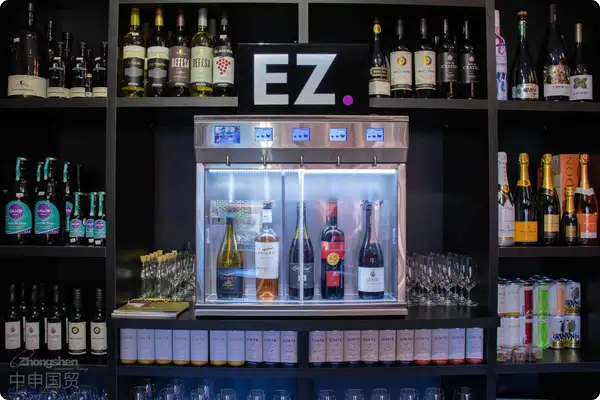

 PSB Record: Shanghai No.31011502009912
PSB Record: Shanghai No.31011502009912 